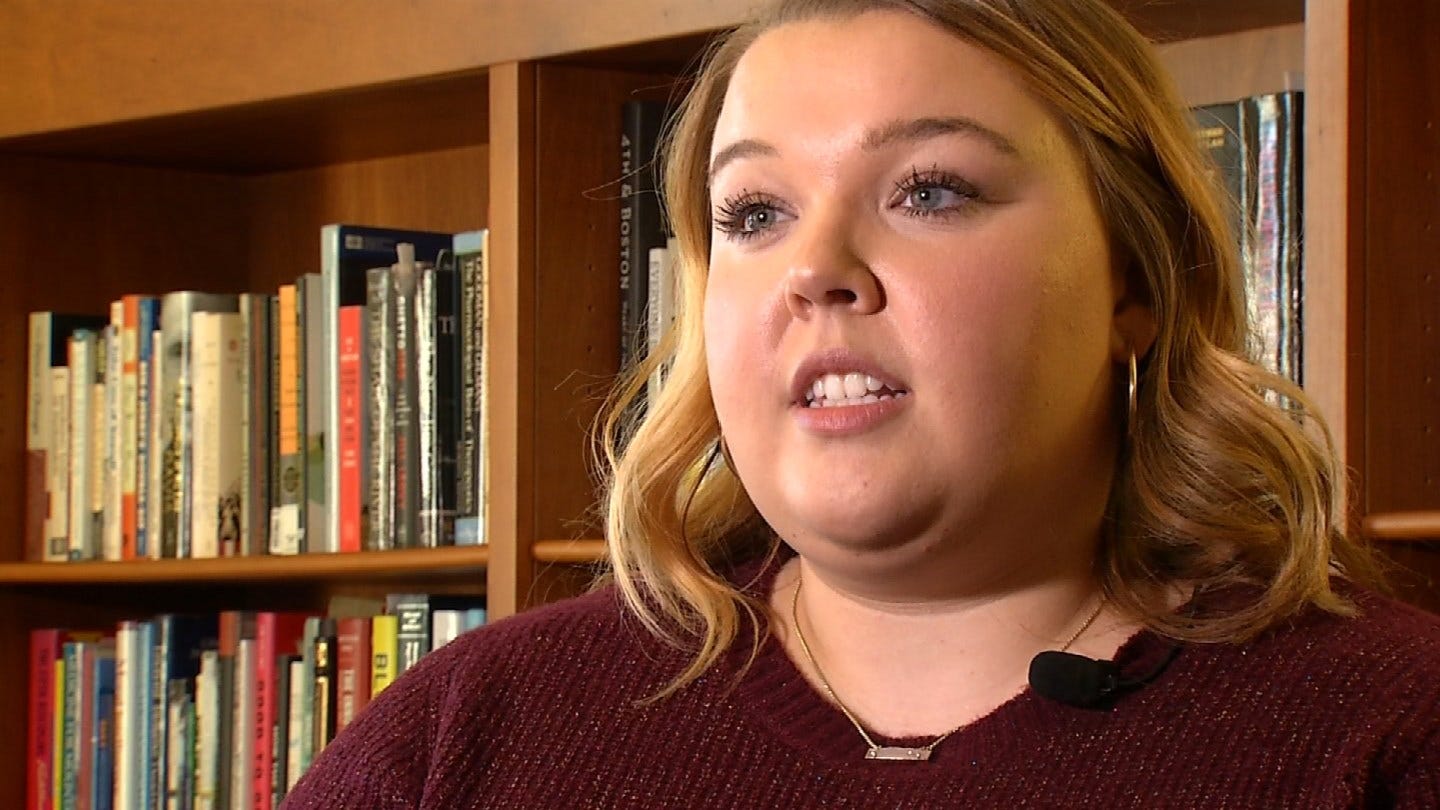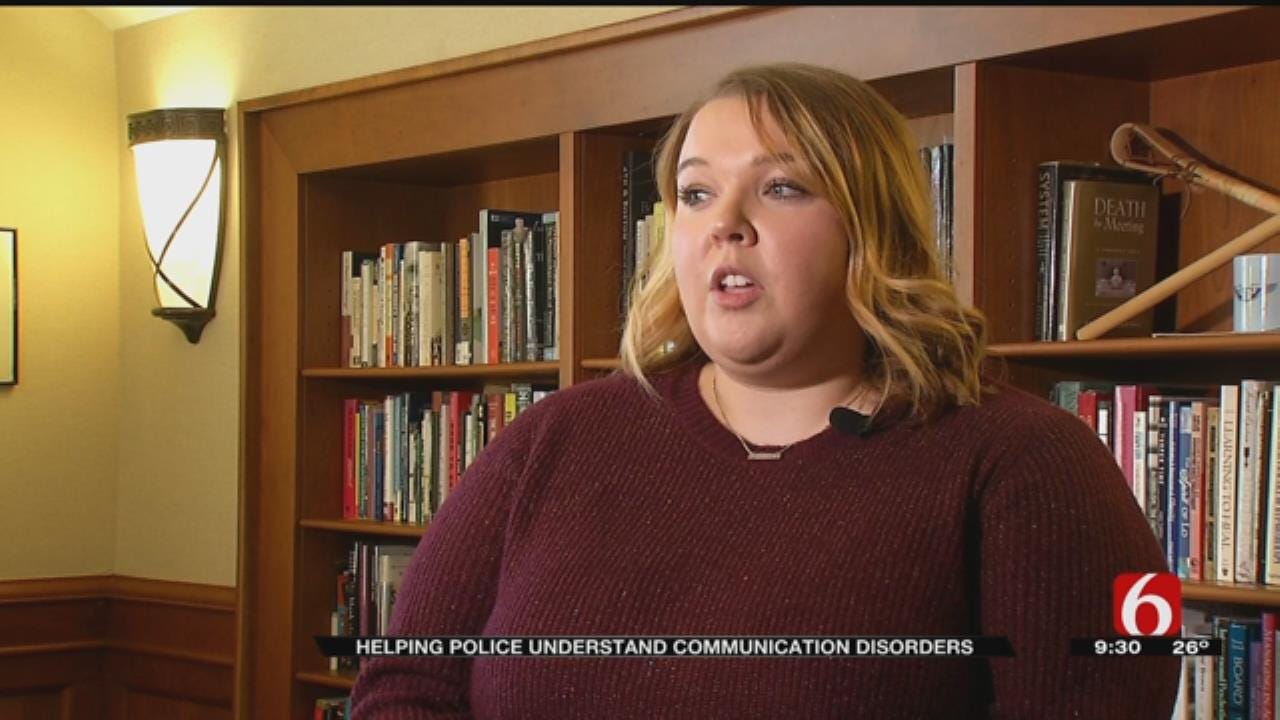TU Student Helps Officers Better Understand Communication Disorders
A University of Tulsa Masters Student is working to help law enforcement officers better understand people with communication disorders. First, she met with Tulsa Police Department and now she's looking to expand her program to other parts of Green CountrMonday, January 28th 2019, 9:18 pm
A University of Tulsa Masters Student is working to help law enforcement officers better understand people with communication disorders.
First, she met with Tulsa Police Department and now she's looking to expand her program to other parts of Green Country.
TU Masters Student Natalie Mayberry met with several Tulsa Police Officers to discuss different communication disorders they may encounter while out on patrol.
She says she is doing this to help those who have trouble advocating for themselves.
“There is just this lack of awareness regarding communication disorders as a whole,” said Natalie Mayberry.
Natalie Mayberry works with people with communication disorders and wanted to develop a program to help police officers better understand them.
“With some acquired communication disorders, they do have characteristics that overlap with characteristics that someone who was intoxicated would portray,” said Mayberry.
Mayberry says some people with communication disorders can slur speech or say phrases that don't make sense so it helps to inform officers of the characteristics so they can distinguish the difference.
So she decided to survey people with different communication disorders-- including those with speech disorders and brain injuries-- and was able to share what people living with the disorder wanted them to know.
“They suggested that law enforcement officers when they come up to a traffic stop to get on their level rather than stand directly above them because for some with a brain injury that motion of looking up could give them a headache,” said Mayberry.
“It was really neat to see how the folks with communication disorders were so involved and give their input and suggestions,” said University of Tulsa Professor Laura Wilson.
Mayberry's professor Laura Wilson says it was also great to get feedback from law enforcement officers about things that would help them out in the field.
“They recommend carrying cards that identify the communication disorder that the person has so if, for example, there’s a traffic stop they can hand over a card saying I have aphasia that makes it hard for me to find words sometimes,” said Wilson.
But Mayberry says the point she really wanted to get across was that it may be hard for people with communication disorders to find words, but it doesn't mean they don't understand.
“It’s really great that now even though it was a small group of police officers now they have 21 police officers out there advocating for them,” said Mayberry. “It was like putting the pieces of a puzzle together which I don’t know was really cool to see people learn from your presentation.”
Mayberry is looking to continue giving her presentation to other law enforcement agencies across Green Country, so if you are interested you can email her at natalie-mayberry@utulsa.edu.
More Like This
January 28th, 2019
January 2nd, 2025
September 29th, 2024
September 17th, 2024
Top Headlines
March 31st, 2025
March 31st, 2025
March 31st, 2025













